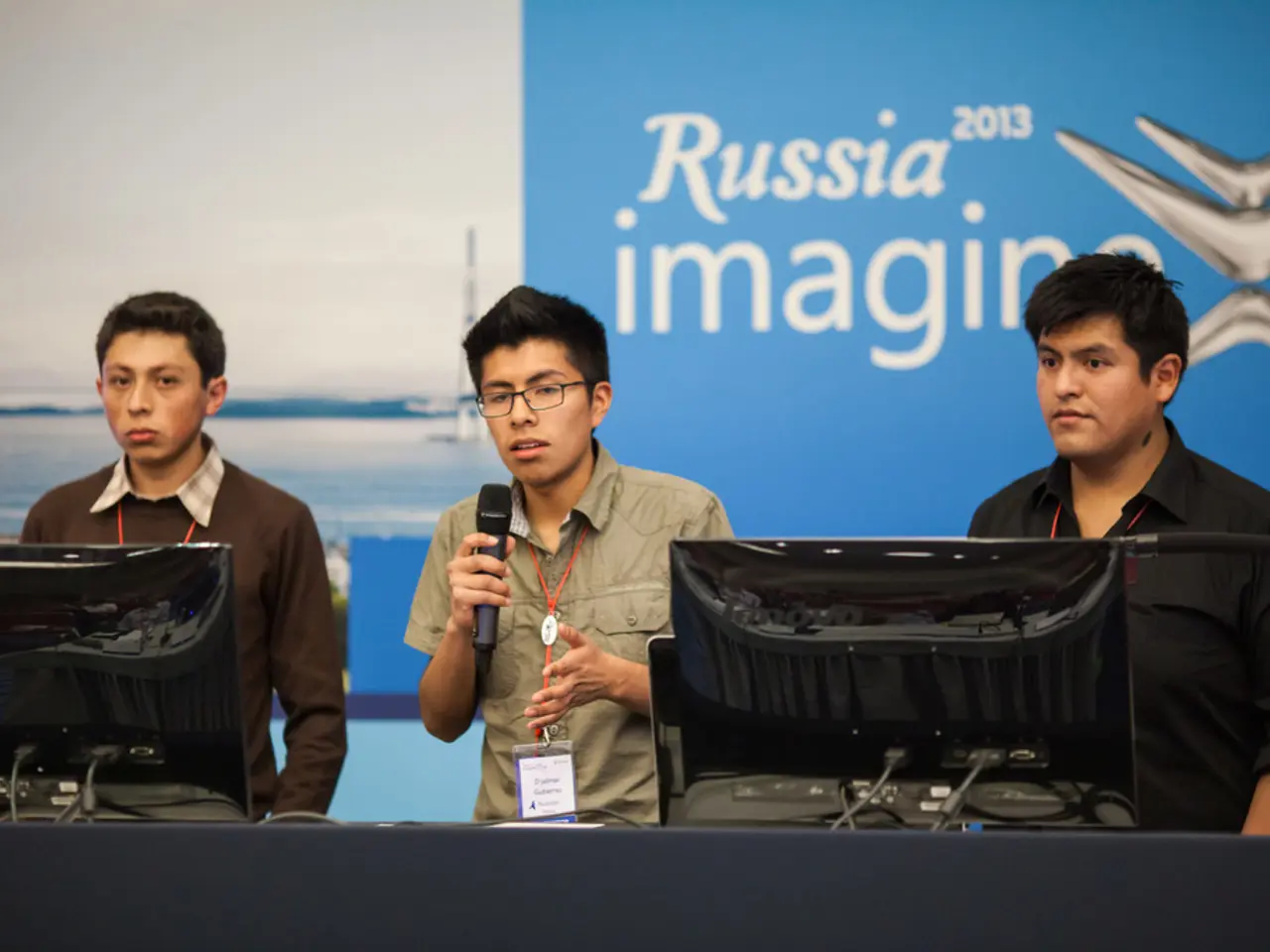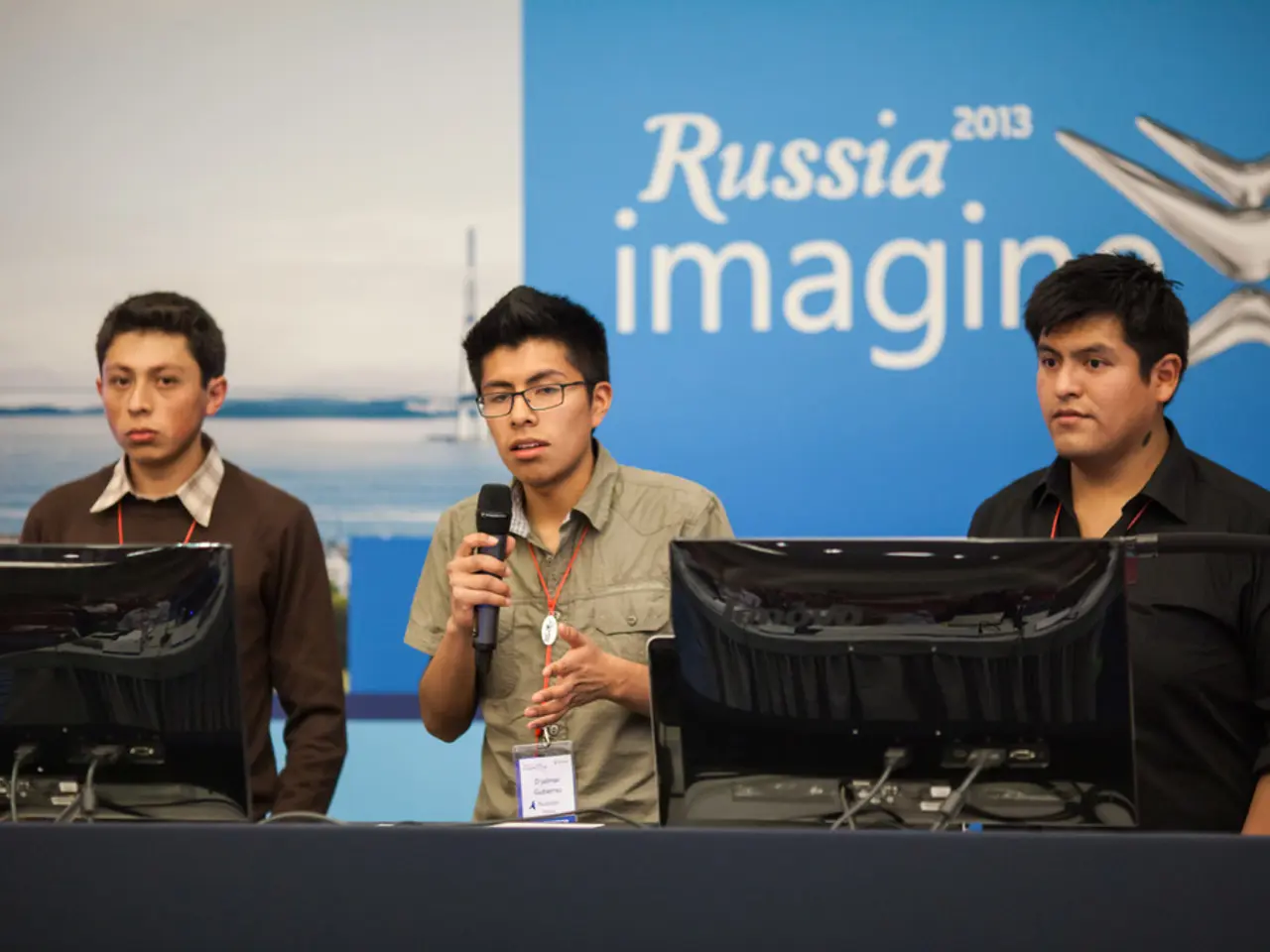Minister of Russian Economy issues recession alert
Russia's Economic Struggles: A Precarious Path Ahead
The Kremlin's unexpected warnings reveal a murky economic landscape for Russia. economy. Economy Minister Maxim Reshetnikov paints a bleak picture at the St. Petersburg International Economic Forum, stating, "The numbers show a cooling off, and we're already hovering on the edge of transitioning into a recession." He fingers the central bank's policies and foresees a dip in investments.
Reshetnikov criticizes the current interest rate level, claiming it discourages businesses from investing. Recently, the central bank eased slightly, reducing the key interest rate from 21 to 20 percent. During the last two quarters, investments might dwindle beneath last year's levels, according to the minister.
Central Bank Chief: Resources Running Dry
Central Bank Head Elvira Nabiullina counters accusations of an erroneous monetary policy but admits to looming challenges. Despite sanctions, Russia's economy has grown for two years, thanks to import substitution programs, backed by cash from the National Welfare Fund and banking system reserves. Nabiullina rightly notes, "We must grasp that many of these resources are indeed dwindling. It's high time we contemplated a new growth model."
Russia has been engaged in conflict with Ukraine for three years. The past growth was largely propelled by increased military and security spending.
The Struggling Economy in 2025: A Glimpse
Russia's economic situation in 2025 is characterized by a strained and precarious state, marked by deteriorating oil revenues, escalating military spending, and adjustments to monetary policy amid broader structural dilemmas.
The federal budget deficit has skyrocketed, tripling to around $49.4 billion, largely due to a shortfall in oil and gas revenues. To bridge these budget gaps, the government has boosted borrowing significantly and aims to drain from the National Wealth Fund, although it wishes to conserve its liquid reserves.
Military expenditure looms large in the federal budget, demanding an overwhelming portion of state finances and siphoning resources away from productive investments or domestic economic support. As a result, the fiscal system and overall economy experience instability.
The Central Bank of Russia shows signs of optimism by cutting its key interest rate slightly. Yet, inflation lingers, remaining above pre-war levels at around 10 percent, making it difficult to stimulate growth and manage debt.
Resource depletion and the reliance on a worn-out growth model pose significant threats to Russia's economic stability. Analysts warn that without fundamental changes or external relief, the current trajectory may lead to long-term economic deterioration and a systemic crisis.
The finance minister, Maxim Reshetnikov, criticizes the central bank's policies and foresees a dip in investments, as the interest rate level discourages businesses from investing, despite a recent slight easing from 21 to 20 percent. In the general-news sector, analysts warn that without fundamental changes or external relief, Russia's economy, already struggling with a precarious path ahead, may face long-term economic deterioration and a systemic crisis due to resource depletion and the reliance on a worn-out growth model.





